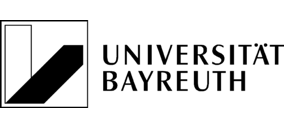Training approach
The following training approaches are used in the CAS Transnational Healthcare Management:
Practising on a real example
The participants practise their gained transnational knowledge on real examples.
The own transnational project as an anchor poin
Participants lead a transnational project in their area of interest. This serves as a training object to transfer what they have learned into practice.
Transnational project groups as an informal source of information
Due to the transnational mix of participants, the students gain informal knowledge about the foreign health system from those directly involved, which is otherwise rarely available.
Peer-to-peer training
Collegial case counselling is a reflection in partnership based on concrete questions. (Standards such as Collegial Consult and Coaching-Kata are used.) This happens at regular intervals within and outside the teaching sessions.
Coaching
Between the training blocks, personal questions are analysed in coaching groups and solution options are developed.
Theory-based and critical reflection
Participants learn the basic theoretical concepts and reflect critically on what they have learned in relation to their own country-specific context.
Project presentation
The participants practise their gained transnational knowledge on real examples.
Combination of self-study and classroom study
To ensure that all participants enter the training with the same prerequisites, a certain amount of self-study is expected.


